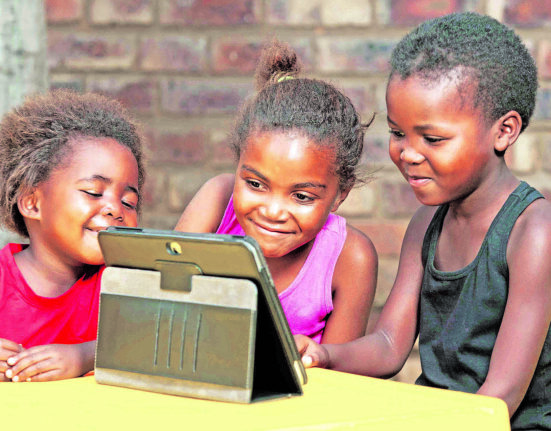(Published on Wednesday, January 19, 2022)
By George Bita
With the reopening of education institutions, secondary school students have been introduced to a competence-based curriculum. Throughout January, Mwalimu is exploring various aspects of the curriculum. In the third article of the series, George Bita shines a light on the assessment process of the curriculum

The new secondary school curriculum was in the process of being introduced at Senior One level when COVID-19 broke out in the country, prompting a nationwide closure of schools.
There were workshops countrywide to prepare teachers to handle the competence-based curriculum and those who attended became focal persons at their respective schools.
Robinson Chekwurui, a biology and chemistry teacher at Sebei College Tegres, believes enough preparations have been made for assessment of the new curriculum.
“We are all set to get on with the curriculum and undertake the new evaluation procedure. That is what refresher trainings have been all about,” Chekwurui says.
Paul Mwijuka, the head of mathematics department at Kyamuhanga Secondary School in Bushenyi district, shares a similar view, saying despite the COVID-19 impact; most concerned lower secondary school teachers have mastered the technicalities of the competence-based curriculum.
Genesis
Chekwurui says with the competence-based curriculum, students are supposed to mainly learn in groups and practically as opposed to the traditional teacher-centred lecture methods.
“Forget about the chalk-and-talk dominance by the teacher. This time, much of the work is child-centred, giving students great potential to learn,” Chekwurui says.
Stephen Mongusho, a competence-based curriculum teacher trainer at Sebei College Tegres, says a lot has changed, with a teacher becoming a facilitator of learning as opposed to the sole dispenser of knowledge.
“Our teachers will now basically offer an enabling environment for children to learn. Gone are the days of the teacher being the alpha and omega of learning in school,” Mongusho says.
Alternative Assessment
Deogracious Ojok, a biology teacher at Trinity Senior Academy, Bwebajja in Wakiso district, says whereas evaluation at O’ and A’level had been monopolised by the Uganda National Examinations Board (UNEB), with the new curriculum, continuous assessment is accounting for 20% of the final score.
Mark Opolot, a physics and chemistry teacher at Ngora High School, explains that the new curriculum emphasises the skills and attitudes that will be put to practical application on top of the usual knowledge attained from the learning process.
“In brief, we are testing children on how they acquire and apply the knowledge, skills and attitudes to situations they come across in everyday life. These are testable after every end of chapter as opposed to the old evaluation procedures,” Opolot observes.
He says the teacher would evaluate how a learner can apply knowledge obtained in a specific topic and whether the child has a unique application as well as integrating it into information technology (IT).
Since there are both compulsory and elective subjects, Opolot says they both contribute to the 20% score sent to UNEB as it is meant to be obtained per subject registered for by the candidate.
“At the end of every topic per subject, the teacher’s assessment will generate marks to be filed. Then the final mark out of 20% will be submitted to UNEB when the learner gets to Senior Four,” he says.
Ojok says every end of topic calls for an assessment which must contribute towards the final examination by UNEB.
“For example, if a learner studies physical education, which is now a core subject up to Senior Three, he or she can sit the Directorate of Industrial Training organised evaluation. Once successful, this child can become a trained football referee.”
He adds that similar evaluation in computer studies or entrepreneurship by learners at O’level would guarantee learners a certificate equivalent to the one of junior level of technical education in Uganda.
“The business of taking report cards to parents with 70% or 85% is no more. Every topic in a subject will now be scored with a maximum of three and minimum of one,” Ojok explains.
He says with this new format, the scores will be per topic to enable parents to know where exactly the child has a weakness.
He discloses that ‘3’ means the child has achieved everything required at that level, ‘2’ partial achievement but can progress to the next topic, while 1 shows achieved little and should not progress.
Ojok says getting 1 calls for the learner being taken through the ‘failed topic’ again to enable them grasp what he or she had failed at the first trial. “In the past, a child may have understood the topic of reproduction, but failed to grasp that of ecology, ending up being portrayed as a failure in biology. This will change,” he emphasises.
Ojok says this set-up will enable the teachers to know where a learner is failing and can, therefore, be taken through that specific topic so as to catch up with others.
By the time a learner completes O’level, they would have a cumulative score for the topics covered graded out of 20. The marks will be sent to UNEB by the school’s director of studies,” he says.
Mwijuka says the UNEB evaluation will be marked out of 80%, meaning a child will already have a starting point even if the final performance is so low.
“For example, if a child gets 30% in the UNEB mathematics exam and already had 20% from school work; that learners’ score will be 50%. This deviates from earlier set-up, whereby only the final exam scores mattered,” Mwijuka says

Behavioural Assessment
One of the areas to be assessed in the new curriculum is a learner’s behaviour. Opolot says behavioural assessment includes association with peers and sharing or readiness to assist (useful in determining teamwork potential or volunteerism that may prove important in a work environment later).
He says the behavioural traits also include patriotism, concern for environment as well as respect for elders.
“A parent stays with his or her child much longer, hence they are well-placed to give reliable information on this. Then the teacher will compare with the behaviour exhibited on compound for conclusive evaluation,” he says.
Ojok says the parents or guardians have a big role to play in the behaviour assessment of their children.
“A teacher can have a chat with a parent more like a counsellor and client to establish how the son or daughter behaves at home. This gives the teacher a hint on the score for this section of the assessment,” Ojok says.
He says interaction with the parent helps the teacher avoid making a decision based entirely on what is observed about the child while at school.
Chekwurui says parents have already been sensitised on what to expect in the new curriculum and have been encouraging their children to get ready for the new normal.
Malpractice Concerns
Opolot expresses worry that the new curriculum may be faced with malpractice as teachers might ensure that they give their learners good scores out of 20%.
“In this era of stiff competition among schools, we may see some cases of doctored results. After all, these are results to be compiled and sent by the director of studies,” he says.
Mwijuka argues that since evaluation is to be after every topic and teacher absenteeism is still a problem, cases of simply awarding scores may arise.
Tanzania’s Story
In Tanzania, the competence[1]based curriculum was introduced in 2005 and has led to noticeable changes in the way learning takes place in this East African Community member state.
Thabita Lupeja and Sotco Komba, both researchers at Sokoine University of Agriculture, made submissions on the status of Tanzania’s competence-based curriculum in the International Journal of Research Studies in Education (Vol. 10: 2021).
The duo testifies that the country’s education system can now comfortably be categorised under pre-colonial, colonial and post-colonial education eras.
They believe the current education system is aimed at equipping students’ capability vital and relevant or applicable in equipping students with competencies relevant to the development of the nation.
“In this approach, learners are assumed to have the capability to construct the knowledge instead of being assimilators of information from a teacher. It calls for getting the appropriate knowledge for application to real life settings,” Lupeja says.
She says in accordance with key learning areas, students who complete secondary school curriculum in Tanzania are expected to demonstrate a wide range of competencies relevant to everyday life.
“They should have essential livelihood skills. Such skills could be helpful in handling existing challenges in the community as well as cater for its changing needs,” she notes.
However, the researchers affirm that despite the over 15- year effort, the learners do not actually get the required skills beneficial to the community.
Apparently, there is still a gap between knowledge acquired through classroom instructional practices and what was targeted by policymakers as school products seem not to acquire expected skills.
“All the curriculum stakeholders, including the National Examinations Council of Tanzania, should collectively review the curriculum implementation process. This is important for expected learning outcomes demanded by the competence-based curriculum to be realised,” Lupeja recommends.
A 2013 probe done by the University of Dar es Salaam’s School of Education shows 27% of the teachers countrywide received training in competence-based curriculum and barely 25% can make appropriate lesson planning.
It was also uncovered that despite the curriculum plan, about 53.3% of the teachers still use the traditional lecture method to impart knowledge to learners in Tanzania.
The International Labour Organisation (ILO) report (2016) puts youth unemployment in Tanzania at 11.5%, citing failure to translate educational growth into decent employment to alleviate poverty
New Vision Supports Competence-Based Curriculum
Weekly publications
To support the implementation of the competence-based curriculum, New Vision, starting this month, is publishing related lesson materials. The lessons are targeting students in Senior One and Senior Two and are published from Monday to Saturday.
The eight core subjects that New Vision is publishing are mathematics, English, physics, chemistry, biology, Kiswahili, geography and entrepreneurship.
The competence-based curriculum seeks to ensure that teachers and learners relate textbook knowledge to real life. Therefore, the lessons involve activities in the various subjects for the learners to perform, relate to their communities and base on to solve problems instead of memorising teachers’ notes.
Textbooks
Working with a team of expert teachers, Vision Group has also published textbooks highly ranked by the Ministry of Education and Sports for the new competence-based curriculum. They will be available at all Vision Group sales outlets by the end of this month. To book newspapers and textbooks, WhatsApp: 0774605377.
Stakeholders Speakout
Felix Okello, parent from Bukedea district
The new curriculum still confuses many of us. However, we hope we shall be sensitised more about it.
Edith Naiwumbwe, teacher at Budiope SS, Buyende district
It is a step in the right direction to have each topic contributing towards the final mark. Students will appreciate the importance of everything learnt in class.
Patrick Eretu, teacher from Amuria district
The workshops most teachers attended on the curriculum lasted barely five days. It was clear that the time was not enough as some things were simply rushed through. There is a need for further training.
Edisa Nabirye, parent from Nawandala village, Iganga district
My child has told me they are having a new curriculum. Unfortunately, I am yet to understand what it is all about.








Leave feedback about this